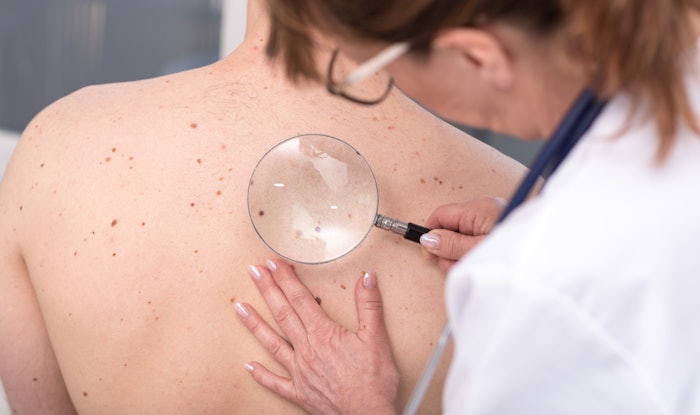
Melanoma is still on the rise in the U.S. in 2025, despite a wealth of information available on this very preventable disease. This was reported by The Skin Cancer Foundation in its updated Skin Cancer Facts & Statistics, following the release of American Cancer Society Cancer Facts & Figures 2025 in January 2025. Staggering melanoma and skin cancer statistics for 2025 include the following.
- It’s estimated that the number of new melanoma cases diagnosed in 2025 will increase by 5.9%.
- An estimated 212,200 cases of melanoma will be diagnosed in the U.S. in 2025. Of those: 107,240 cases will be in situ (noninvasive), confined to the epidermis (the top layer of skin). 104,960 cases will be invasive, penetrating the epidermis into the skin’s second layer (the dermis). Of the invasive cases, 60,550 will be men and 44,410 will be women.
- In the past decade (2015 – 2025), the number of new invasive melanoma cases diagnosed annually increased by 42%.
- The number of melanoma deaths is expected to increase by 1.7% in 2025. An estimated 8,430 people will die of melanoma in 2025. Of that number, 5,470 will be men and 2,960 will be women.
- The Skin Cancer Foundation estimates that the total number of nonmelanoma skin cancers (NMSCs) diagnosed annually in the U.S. is 5.4 million. (It is important to note that cases of NMSC are not required to be registered in the same way as cases of melanoma, and so estimates are established through a different method.)
Dangerous Cultural Trends
The Skin Cancer Foundation notes that skin cancer remains the most common cancer that Americans face. It warns of several cultural trends that might contribute to the continued rise of skin cancer cases, including:
- Claims made on social media, not backed by medical science, that encourage unprotected sun exposure.
- Lack of awareness or, potentially, health-care access among specific demographics regarding their risks for developing skin cancer — including people with skin of color and men.
- Lack of sun protection support for outdoor workers.
Be A Beacon Of Education
As skin care professionals, we need to do more. We need to educate all of our clientele as best as we can. This includes both education in the treatment room and in your marketing (including social media). Consider putting together a sun protection card that you give to all clientele with a sample size of your favorite sunscreen, and don't forget to recommend sunscreen as part of the protocol for every client.
Also, don't forget to educate on sun protection on your social channels and in your e-newsletter. The more education we put out there from licensed skin care professionals, the more we quiet the incorrect advice from unlicensed professionals.










